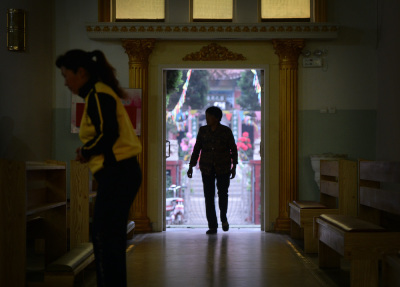Evangelizing Asia: We must disciple in ways more suited to the Asian context
At the 11th General Assembly of the Asia Evangelical Alliance (AEA) held in Ulaanbaatar, Mongolia, from August 7-12, 2024, approximately 200 participants from 23 national alliances and 20 mission organizations engaged in meaningful discussions under the theme “Disciple or Die.” This gathering, part of the World Evangelical Alliance (WEA), focused on how Christians and churches across Asia should approach fulfilling the Great Commission in the coming decade. The overwhelming consensus was that effective discipling in Asia requires collaborative efforts among national alliances and their partners. Given that Asia is home to just 7.9% of the world’s Christian population, the importance of discipling in this region cannot be overstated.

In comparison to other continents, Christians make up 8.6% of the population within Asia, while Africa has 48.5%, and Latin America boasts 92.7%. In Latin America, historical factors have shaped these figures significantly with colonialism, particularly through Roman Catholic missions, deeply influencing the region, embedding Christianity into the cultural fabric of many countries. This strong Christian identity is further supported by religious freedoms that allow denominations to flourish.
In Africa, the initial spread of Christianity was fueled by missionary efforts during the colonial era, but the rapid expansion is largely due to the vigorous indigenous evangelism by local leaders. This growth is also supported by the effective integration of Christianity with local customs and traditions.
In contrast, the growth of Christianity in Asia has faced more obstacles. Although missionary work and social development initiatives have made an impact, challenges such as entrenched religious and cultural traditions, government restrictions, social and political pressures, and economic difficulties have hindered the spread of Christianity. Unlike Latin America, where Christianity is deeply woven into cultural identity, or Africa, where it has blended with local traditions, Christianity in Asia often remains somewhat disconnected from local cultural expressions.
Given these conditions, the national alliances of the AEA identified a need to disciple Christians in ways more suited to the Asian context and focused on several key areas to advance the Christian mission in Asia. These include:
- Nurturing indigenous Christians to develop their identity within the Asian context.
- Equipping them to effectively share and adapt their faith to local cultures.
- Raising up leaders who understand and can navigate local traditions while discipling new believers.
- Ensuring the Church becomes more locally sustainable and culturally relevant.
It is crucial for Asian churches to be mindful of how discipleship occurs in their context — primarily through relational or intuitive methods. Discipleship should be grounded in local cultural understanding rather than abstract reasoning. For the Great Commission to progress and the Gospel to spread rapidly, Asian Christians must disciple, adapting and integrating their faith deeply into their local spirituality and cultural practices, leveraging indigenous leaders to communicate and propagate the message effectively.
Originally published by the World Evangelical Alliance Mission Commission. Republished with permission.
Chansamone Saiyasak is the founder/director of Mekong Evangelical Mission, focusing on mobilizing and training indigenous leaders for the gospel evangelization in Mainland Southeast Asia. He is a leader in the Asia Mission Association (AMA) and SEANET Buddhist Missiological Forum, providing training and networking for outreach to the Buddhist world. He serves as the President of Asia Society of Missiology (asianmissiology.org), Professor of Religious Studies & Missiology, Zinzendorf School of Doctoral Studies, Olivet University (California, USA), and a leader of AEA’s national alliances: Evangelical Fellowship of Thailand and Evangelical Fellowship of Laos. Chansamone received his missiological training, DMin in Missiology from Mid-America Baptist Theological Seminary, Tennessee, USA, and PhD in Theological and Religious Studies from Evangelische Theologische Faculteit, Leuven, Belgium (etf.edu).





















